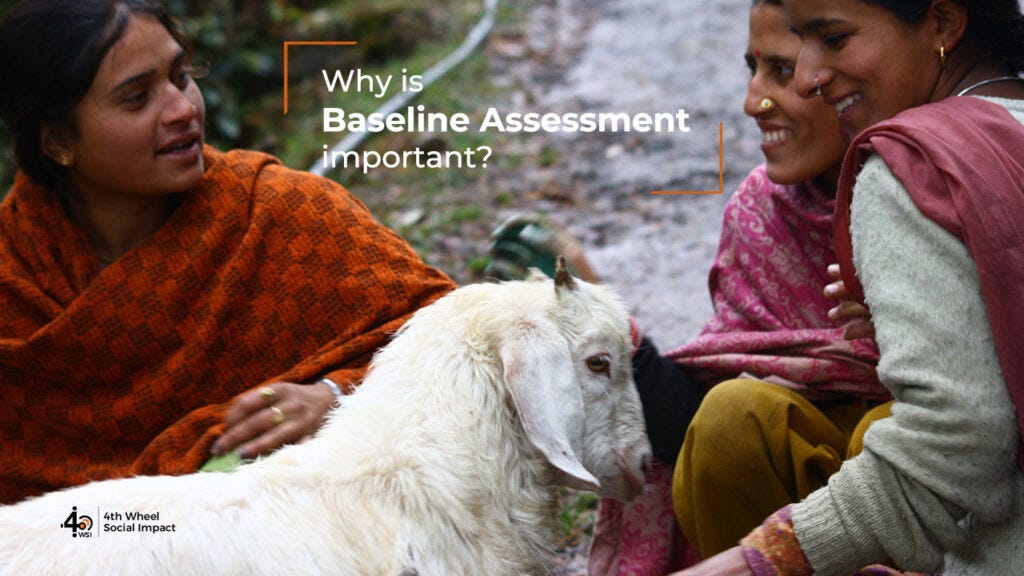Why is Baseline Assessment important?
A baseline assessment is an analysis of the current situation to identify the starting points for a programme or project, setting benchmarks against which future progress can be assessed or comparisons made. Baseline information builds a database against which to monitor and assess a programme’s feasibility, progress, and effectiveness – during implementation and after the programme is completed.
Let us understand the meaning and importance of a baseline assessment with an example, i.e.: XYZ NGO is implementing a remedial education programme for children in 100 Government schools in ten districts of Rajasthan.
Baseline Assessments provide a deep and local understanding of the social problems, the target group, and ground realities, identifying factors that may influence the success or failure of a programme
Before initiating the programme, it would be important to gain an understanding of the underlying situations in terms of infrastructure and quality of teaching in schools, available tutorial programmes in villages, and opinions and motivations of parents and students to partake in the classes.
This would help to develop a pre-intervention narrative on the factors affecting the learning of children in selected geographies. This information would enable the programme strategy and design team to consider the various factors which affect student learning (test scores) and will ensure the programme integrates these contextual realities.
Baseline Surveys collect data on specific impact indicators to trace progress among target beneficiaries over the project’s life cycle
The goal of the programme is to improve learning outcomes among students. This is going to be measured through the improvement in the test scores of students. Some of the other impact indicators of the remedial education programme would be student attendance in schools, enrolment in higher education, etc. A baseline survey in schools (with appropriate sampling) will enable us to get information on these indicators of beneficiaries before they undergo the programme.
Baseline data put in place the building blocks of an effective monitoring system and improves service delivery. For example, the target of the programme is to achieve an average test score of 75/100 among the 10 sample schools. If the average test score is 55/100 in the baseline, and changes to 60/100 after one year of programme implementation, the team might have to revisit the programme and make course corrective actions to ensure test scores improve to 75/100. To do this, the team would have to look at why test scores are not improving as estimated and what factors are inhibiting programme success.
Baseline Information provides a clear starting point for any results-based management system and enables clarity among varied stakeholders.
Baseline research enables participatory programme development and consultation processes to define the needs, opportunities, and priorities of stakeholders. By having concrete data on baseline assessment in the education of the targeted children, an organisation will be able to properly estimate the impact of interventions against which the results of an endline survey can be compared.
The pre-post comparisons of baseline and endline data can be used to communicate programme successes and areas of improvement with programme implementers, funders, beneficiaries, school leadership, and all stakeholders who influence programme results. If all stakeholders have concrete data that the programme is not contributing as expected to test scores of students (as seen in the example), it will bring them together to identify external factors and implementation weaknesses and take course corrective actions to rectify the situation.
Capturing the right information before your intervention begins, aligned to your goals and expected results, ensures the effectiveness, impact, and relevance of your programme in the long run. Understanding the baseline environment is therefore important to understand what difference the project makes in the short, medium, and long term.
We undertook a Baseline Study for United Way Mumbai to explore housing, education, health, sanitation, livelihoods, and safety in slums to design social programmes within the lens of a ‘Collective Impact Model’. Read more about our work on this project here.



